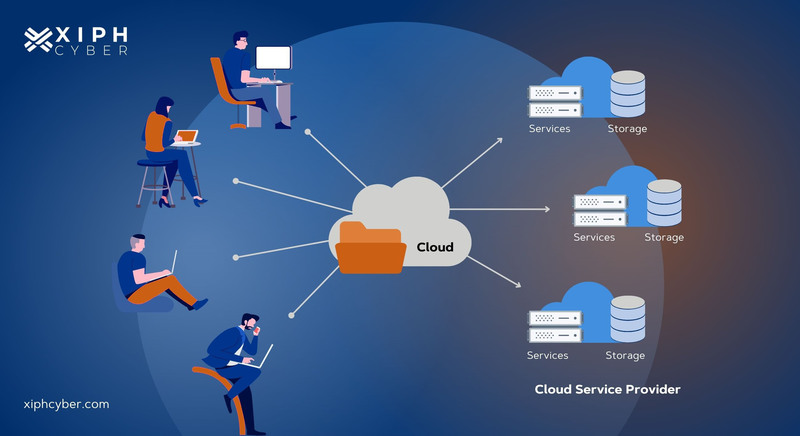Transform Your IT Infrastructure With Universal Cloud Services
In today's rapidly progressing digital landscape, the shift towards universal cloud services has become a strategic important for organizations seeking to boost their IT facilities. The capability to enhance procedures, improve scalability, and increase overall efficiency with cloud movement is undeniable. The actual concern lies in just how these services can be customized to resolve the special needs and obstacles dealt with by various companies. By checking out the nuanced methods in which global cloud solutions can be personalized and incorporated, organizations can absolutely open their complete capacity in attaining digital transformation and affordable advantage in the market.
Advantages of Universal Cloud Services
Welcoming universal cloud services offers organizations a myriad of advantages that improve operations and enhance scalability in today's dynamic digital landscape. One crucial benefit is cost-efficiency, as cloud services remove the requirement for in advance financial investments in hardware and framework. This pay-as-you-go version permits organizations to range resources up or down based upon their demands, optimizing costs and decreasing total IT prices. In addition, cloud solutions offer versatility and accessibility, making it possible for workers to access data and applications from anywhere with a web link. This not only improves cooperation and performance yet likewise supports remote job plans, which have actually come to be progressively widespread in the modern-day organization world.
In addition, global cloud services use improved safety and security steps, with data encryption, regular back-ups, and integrated disaster healing mechanisms. Overall, accepting global cloud solutions can lead to boosted effectiveness, agility, and competition for services in today's electronic age.
Migration to Cloud Facilities
Migrating to shadow infrastructure offers countless benefits, including scalability, cost-efficiency, and boosted dexterity. Cloud solutions get rid of the need for considerable in advance investments in physical equipment, minimizing resources expenses and allowing organizations to pay just for the sources they make use of.
One more benefit of moving to shadow infrastructure is the enhanced dexterity it supplies. Cloud systems offer quick deployment of solutions and applications, enabling services to adjust rapidly to market changes and stay in advance of competitors. In addition, the cloud helps with remote accessibility to applications and information, promoting collaboration among geographically spread teams.
Enhancing Data Security Procedures

One critical facet of boosting data security is implementing multi-factor check out here authentication (MFA) to add an added layer of security beyond passwords. MFA needs individuals to provide 2 or more verification aspects, such as a password and an one-of-a-kind code sent out to their mobile tool, before accessing delicate information. This considerably reduces the risk of unauthorized accessibility, also if passwords are jeopardized.
Additionally, organizations should routinely perform protection audits and vulnerability assessments to recognize and attend to potential weaknesses in their data security framework - universal cloud storage press release. By remaining aggressive and continually improving information protection steps, organizations can successfully minimize threats and protect their valuable information properties in a significantly digital globe
Executing Cloud-Based Applications
In adjusting to modern-day technological developments, companies are increasingly leveraging cloud-based applications to enhance their procedures and improve efficiency. Cloud-based applications provide a variety of advantages, including scalability, cost-effectiveness, and flexibility. By carrying out cloud-based applications, organizations can simplify procedures, improve partnership amongst groups, and boost total productivity.

Additionally, implementing cloud-based applications can lead to better data management and safety and read this article security. These applications usually have built-in safety and security features and offer information encryption to protect sensitive details.
Taking Full Advantage Of Cost-Efficiency
To achieve optimum cost-efficiency in leveraging cloud-based applications, organizations must tactically assess their source allowance and use. One crucial technique for making the most of cost-efficiency is to take on a pay-as-you-go version, where companies only spend for the solutions and sources they use. This versatility enables expense savings by eliminating the demand to invest in costly facilities that may not be completely utilized.

Normal tracking and optimization of cloud sources are crucial for identifying locations where cost-savings can be attained. By analyzing usage patterns and efficiency metrics, organizations can make educated choices about resource allowance and further simplify their procedures to maximize cost-efficiency in the cloud.
Final Thought
In final thought, universal cloud solutions provide various benefits such as cost-efficiency, flexibility, enhanced protection measures, and automated updates. Moving to shadow infrastructure enables organizations to utilize cost-efficiency, scalability, and agility to stay competitive.
In addition, cloud services give flexibility and availability, enabling staff members to access information and applications from anywhere with a web connection.Moreover, global cloud services supply improved protection procedures, with data file encryption, normal backups, and built-in calamity recovery systems. Cloud systems provide rapid deployment of solutions and applications, allowing organizations to adapt quickly to market adjustments and stay ahead of rivals. In addition, the cloud promotes remote access to information and applications, promoting cooperation amongst geographically dispersed groups.
In conclusion, universal cloud services provide countless benefits such as cost-efficiency, versatility, improved security steps, and automated updates.